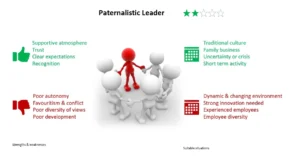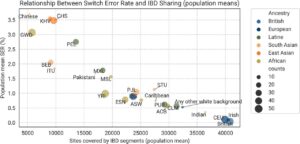What Does Priority Relationship Mean in Guardianship
Priority relationship in guardianship refers to the legal preference or hierarchy in determining who should be appointed as a guardian for an incapacitated person, such as a minor or someone with a disability. The priority is usually based on the person’s relationship to the incapacitated individual, with immediate family members typically having the highest priority.
This order of priority helps ensure that the best interests of the individual are taken into account when making decisions about their welfare and personal affairs. Having a priority relationship may give someone a higher chance of being appointed as a guardian, but the final decision will ultimately be made by the court based on what is deemed to be in the person’s best interest.
Defining Priority Relationship
The concept of priority relationship plays a crucial role in guardianship cases. When it comes to appointing a guardian for a minor or an incapacitated person, the court takes into account various factors. One of the key factors is the priority relationship that the potential guardian has with the individual in need. Understanding what priority relationship means and its significance will help us comprehend the decision-making process in guardianship cases.
Different Types Of Relationships In Guardianship Cases:
In guardianship cases, relationships are classified into different categories depending on the level of kinship or connection individuals have with the person in need. These relationships are considered when evaluating potential guardians. The various types of relationships in guardianship cases include:
- Parent-child relationship
- Sibling relationship
- Grandparent-grandchild relationship
- Extended family relationship
- Close friend or neighbor relationship
Each of these relationships carries a certain degree of priority, and the court examines the circumstances of the case to determine the most suitable guardian.
What Does Priority Relationship Mean?
In guardianship cases, priority relationship refers to the existing familial or close personal relationship between the individual in need of guardianship and the potential guardian. It indicates the level of connection, trust, and familiarity that the individual has with their prospective guardian. A priority relationship can arise from various factors such as blood relation, shared upbringing, emotional bonding, or consistent care. This relationship is taken into account to ensure that the guardian appointed will act in the best interests of the person in need.
The court recognizes that individuals with a priority relationship are more likely to understand the unique needs and preferences of the person in need, making them better equipped to make decisions on their behalf. Additionally, a guardian with a priority relationship is more likely to have established a bond of trust and care, which is crucial for effective guardianship.
It is important to note that the existence of a priority relationship does not automatically guarantee guardianship. The court evaluates various aspects, including the potential guardian’s ability to fulfill their responsibilities, their suitability for the role, and any potential conflicts of interest.
Understanding the importance of priority relationship can significantly impact the outcome of guardianship cases. It ensures that the person in need of guardianship receives appropriate care from someone who understands their unique needs, preferences, and circumstances. By considering the priority relationship along with other factors, the court aims to make decisions that promote the well-being and best interests of the individual requiring guardianship.
Factors Affecting Priority Relationship
In guardianship cases, priority relationship plays a crucial role in determining who will be granted the responsibility of caring for a ward. Several factors come into play when assessing the priority relationship of potential guardians. Understanding these factors is essential in ensuring that the ward’s best interests are met and their well-being is safeguarded.
Legal Considerations In Determining Priority Relationship
When it comes to establishing priority relationship in guardianship, legal considerations come into play. These considerations vary from jurisdiction to jurisdiction but commonly include factors such as:
- The legal relationship between the potential guardian and the ward
- Proximity to the ward’s residence to ensure effective care
- Consanguinity or affinity to the ward, which evaluates the familial ties
- Marital status and family structure of the potential guardian
These legal factors provide the groundwork for assessing the priority relationship of potential guardians, ensuring that the guardianship arrangement is within the boundaries of the law.
Evaluating The Biological Relationship In Guardianship Cases
In some cases, the biological relationship between the potential guardian and the ward carries weight when determining priority relationship. Biological parents often have a natural claim to guardianship, as they possess an inherent responsibility towards the well-being of their child. However, biological ties do not automatically guarantee priority, as the court considers additional factors to determine the suitability of the potential guardian.
Assessing The Emotional Bond Between The Guardian And The Ward
Alongside legal and biological considerations, the emotional bond between the guardian and the ward is evaluated to determine priority relationship. The court assesses the quality and depth of the emotional connection between the potential guardian and the ward. This evaluation helps ensure that the ward’s emotional needs will be met and that the guardian is genuinely invested in their care.
Considering The Financial Stability Of Potential Guardians
Financial stability is another critical factor in determining priority relationship in guardianship cases. The court examines the potential guardian’s financial situation to ensure they are capable of providing for the ward’s needs. Financial stability encompasses factors such as income, assets, and overall financial responsibility. A stable financial situation assures the court that the guardian will be able to meet the ward’s financial needs without causing undue stress or hardship.
Examining The Suitability Of Potential Guardians Based On Their Ability To Provide Care And Support
In addition to the aforementioned factors, the court also examines the potential guardian’s suitability based on their ability to provide care and support to the ward. This evaluation considers factors such as the guardian’s physical and mental health, lifestyle, and their understanding of the ward’s unique needs. Assessing the overall ability of the potential guardian to provide a safe and nurturing environment for the ward is crucial in establishing a strong priority relationship.
Determining Priority Relationship In Guardianship Cases
Priority relationship in guardianship cases refers to the determining factors that give certain individuals preference in being appointed as legal guardians. It involves assessing the best interests of the child, considering factors like the existing relationship and emotional bond with potential guardians.
The Role Of The Court In Determining Priority Relationship
In guardianship cases, determining priority relationship is a crucial aspect of the court’s decision-making process. The court plays a vital role in assessing the relationships between potential guardians and the child in order to determine who is best suited to provide care and support. By considering various factors and the best interests of the child, the court aims to ensure that the selected guardian can provide a stable and nurturing environment.
Factors Considered By The Court In Prioritizing Potential Guardians
The court takes into account several factors when prioritizing potential guardians. These factors may include:
- The existing relationship between the child and each potential guardian
- The ability of the potential guardian to meet the child’s physical, emotional, and educational needs
- The stability of the potential guardian’s lifestyle and home environment
- The potential guardian’s willingness and ability to facilitate and support the child’s ongoing relationship with other significant individuals in their life, such as siblings or extended family members
- The potential guardian’s moral character, ability to provide a safe and loving environment, and their history of responsibly caring for children
The Significance Of The Best Interests Of The Child In The Decision-making Process
The best interests of the child hold significant weight in the court’s decision-making process. The court strives to ensure that the child’s physical and emotional well-being, safety, and overall development are prioritized above all else. By considering the child’s best interests, the court aims to find a guardian who can provide love, stability, and a supportive environment that promotes the child’s growth and happiness.
How The Wishes Of The Child, If Appropriate, May Influence The Court’s Decision
If deemed appropriate by the court, the wishes of the child may be taken into consideration when determining guardianship. The court may consider the child’s age, maturity, and ability to express their preferences. The child’s wishes can provide insight into their emotional bond with a potential guardian and their own desires for their future. While the child’s wishes are not the sole determining factor, they are weighed alongside other relevant considerations to ensure the ultimate decision reflects the child’s best interests.
Challenging Priority Relationship Decisions
Understanding the grounds for challenging priority relationship decisions is crucial when navigating guardianship cases. In the realm of guardianship, a priority relationship refers to the legal preference given to certain individuals who are seen as better-suited to assume the role of a guardian for a minor or incapacitated person. Whether you are contesting a priority relationship decision or seeking to establish your own priority as a potential guardian, it is important to be aware of the legal process and the evidence required to support your challenge. In this article, we will delve into each of these aspects in detail, providing you with a comprehensive guide to challenging priority relationship determinations in guardianship cases.
Understanding The Grounds For Challenging Priority Relationship Decisions
When considering challenging a priority relationship decision in guardianship cases, it is essential to have a solid understanding of the grounds on which you can base your challenge. While the specifics may vary depending on your jurisdiction, common grounds include:
- Insufficient evidence: If you believe that the individual granted priority lacks the necessary credentials, qualifications, or personal attributes to fulfill the responsibilities of a guardian, you can challenge the decision on the basis of insufficient evidence.
- Conflict of interest: If there is evidence to suggest that the person designated as the guardian has a conflict of interest or may prioritize their own interests over the well-being of the ward, it may be grounds for challenging the priority relationship decision.
- Best interests of the ward: One of the primary considerations for any guardianship decision is the best interests of the individual in question. If you believe that the current priority relationship determination does not align with the individual’s best interests, you can challenge the decision based on this ground.
Legal Process For Challenging A Priority Relationship Determination
Challenging a priority relationship determination typically involves following a specific legal process. Here is an overview of the typical steps involved:
- Filing a petition: The first step is to file a petition with the appropriate court or legal authority. The petition should clearly state the grounds for challenging the priority relationship determination and provide supporting evidence.
- Notification: Once the petition is filed, it is crucial to ensure that all relevant parties are properly notified. This includes the individual currently designated as the guardian, other interested parties, and the court or legal authority handling the case.
- Evidence presentation: In order to strengthen your challenge, it is important to provide compelling evidence to support your claims. This may include witness testimonies, medical records, character references, or relevant documentation.
- Legal representation: Engaging the services of a qualified attorney specializing in guardianship cases can greatly assist you throughout the legal process. They can provide guidance, represent your interests in court, and ensure that all necessary legal procedures are followed.
- Court hearing: Once all the necessary steps have been completed, a court hearing will be scheduled. During the hearing, both parties will have the opportunity to present their arguments, evidence, and witnesses.
- Judicial decision: Following the court hearing, the judge will evaluate all the evidence and make a decision. The judge will consider the best interests of the ward, the evidence presented, and any applicable laws and guidelines.
Providing Evidence To Support Your Challenge In Guardianship Cases
When challenging a priority relationship determination, the evidence you present plays a crucial role in the outcome of your case. It is vital to gather and present relevant evidence to strengthen your challenge. Here are some forms of evidence that may be beneficial:
| Evidence Type | Description |
|---|---|
| Witness testimonies | Statements from individuals who can attest to your suitability as a guardian or challenge the current priority relationship determination. |
| Medical records | Documentation of any physical or mental conditions that may impact the guardian’s ability to fulfill their responsibilities. |
| Character references | Letters or statements from trusted individuals who can vouch for your character, reliability, and commitment to the well-being of the ward. |
| Relevant documentation | Any additional documents, such as financial records or educational qualifications, that support your case or challenge the current priority relationship determination. |
By gathering and presenting persuasive evidence, you can strengthen your challenge and increase the likelihood of a favorable outcome in your quest to establish your role as a guardian or contest an existing priority relationship determination.
Conclusion
To sum up, understanding the concept of priority relationship in guardianship is essential for ensuring the best interest of the ward. By recognizing the order of preference for potential guardians, the court can make informed decisions that prioritize the child’s overall well-being and welfare.
The priority relationship guidelines provide a framework that takes into account factors such as the child’s bond with the potential guardian and the ability to provide a stable and nurturing environment. Having a clear understanding of priority relationship can help individuals navigate the guardianship process with greater clarity and confidence.





